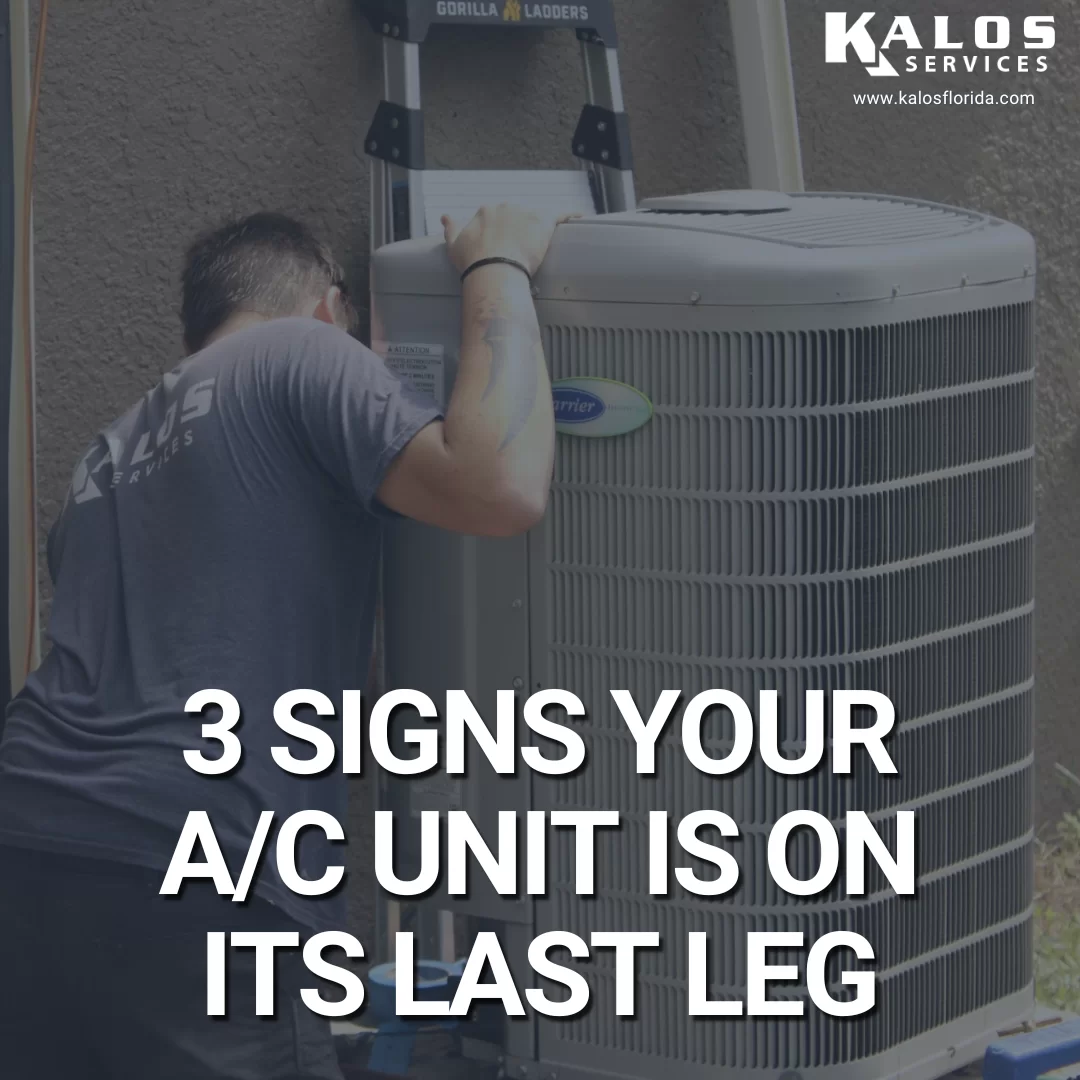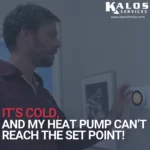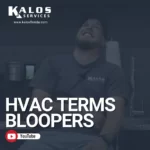Are you wondering how long it will be before your old A/C unit finally breaks down and needs a costly replacement? We know an A/C unit is a big expense and can be hard to predict. Even worse, some A/C companies may try to sell their customers a replacement unit when the existing unit would’ve been just fine with a less expensive repair.
We get a lot of service calls for A/C systems that are having trouble keeping up, especially in the summer. Many of these calls come with expensive repair bills for A/C units that are old and likely on their way out anyway. A new system would be a better investment, but how are the homeowners supposed to prepare for that large up-front expense?
Luckily, there are three things you can look out for to see if it’s time to start saving for a new A/C unit. When you can plan for big surprises like a system replacement, you're able to handle the situation with a lot more ease.
A/C Unit Age
The general rule in the industry is that once an A/C unit reaches 10–15 years, replacing the unit is usually a much better investment than putting money into an older system. If your system is within or past the 10–15-year range, it's usually wise to begin preparing for the system to fail.
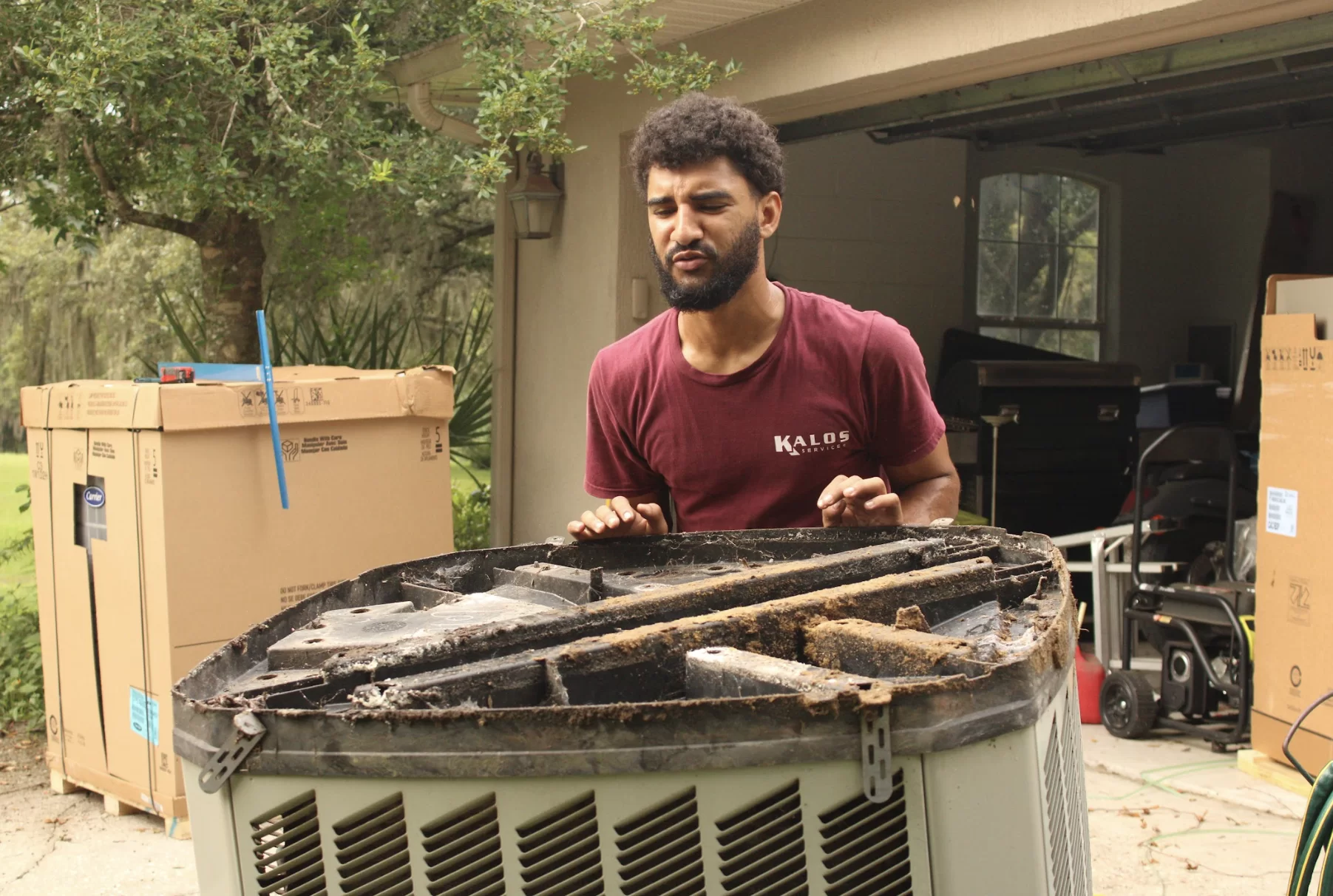
If you don't know your system's age, that's no problem at all. Write down the model and serial number from the manufacturer (Carrier, Trane, Goodman, etc.), and you can give them a call to ask them. If Kalos installed your system, our staff can also help you find the answer.
Proper maintenance is a great way to extend the life of your system. So, make sure to take care of your A/C system, even if it's new. We offer maintenance plans where our techs come out to clean the drains, clean coils, and do a tune-up. You can help extend your system’s life with regular filter changes. (Monthly is usually good for 1” filters. Larger media filters require less frequent changes—about every 6–9 months.)
Humidity
Your HVAC system has an indoor coil, and we can get an idea of the HVAC system’s remaining life by seeing how well it’s performing. This coil is the evaporator, and it has two main jobs in cooling mode: remove heat from the air and remove water vapor (humidity) from the air.
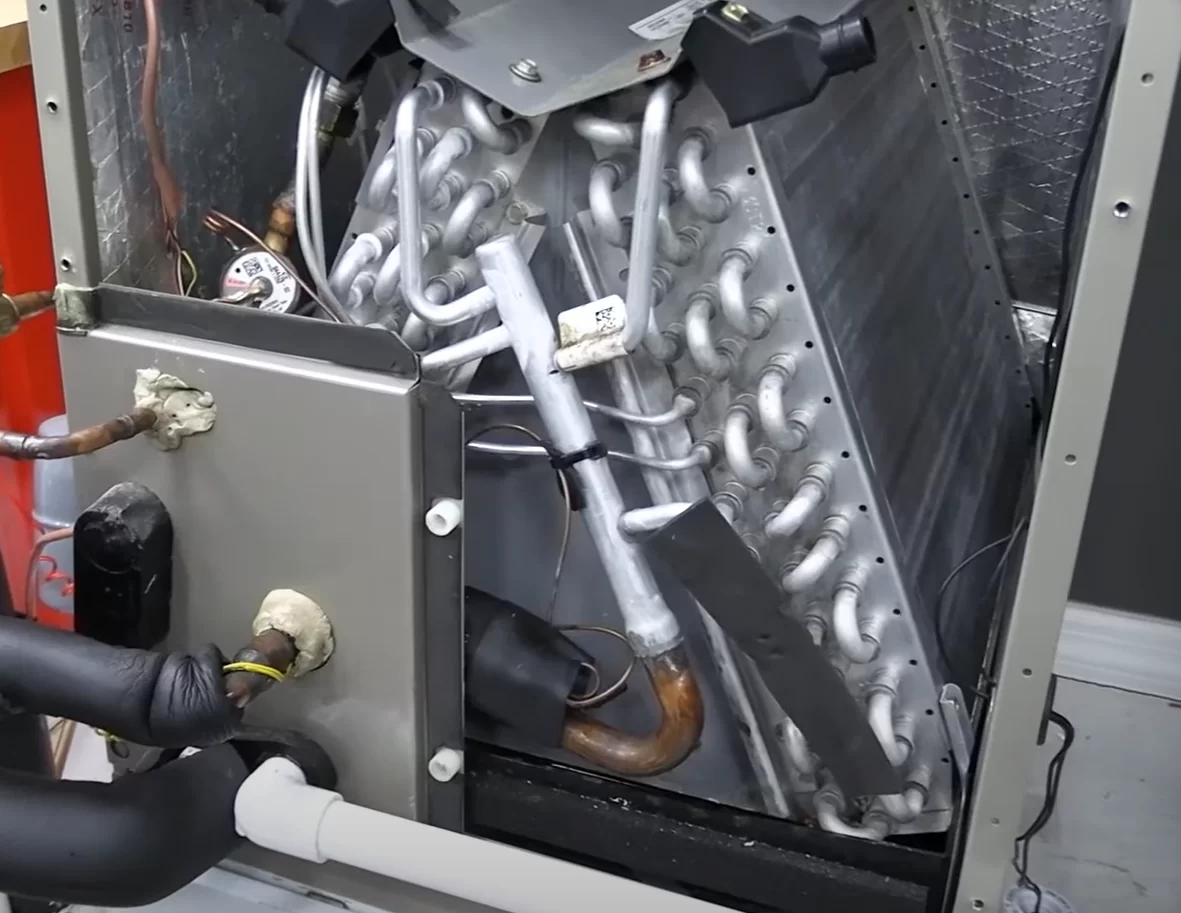
As a unit ages past the normal life span, the system will not perform to its usual standards. The unit may not remove humidity as effectively, which leaves the air more humid and can cause your space to feel clammy rather than cool. If you’re feeling uncomfortable in your home regularly, it might be time to start budgeting for a new A/C system.
Sharp Rise in Energy Costs
As with the coil, the entire system becomes less efficient as it gets older. Your unit will require more power (and higher energy bills) to cool your home. The SEER (Seasonal Energy Efficiency Ratio) is on the label of your air conditioner; it’s the ratio of the cooling your unit can produce to how much electricity it consumes. Higher-SEER systems give you more bang for your buck than lower-SEER systems on the power bill.
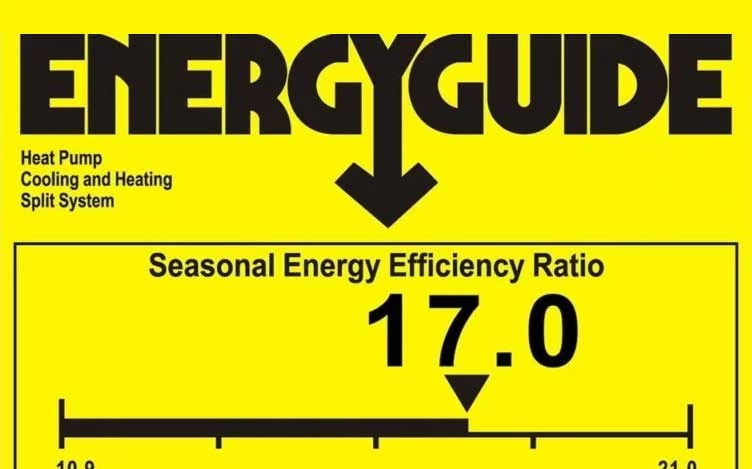
However, an older unit will be less efficient than the SEER rating on the label—which was there when the unit was first installed several years prior. For example, a 16-SEER system could lose enough efficiency within 10 years to be the same as a 15-SEER system or lower.
As a unit loses each SEER increment, up to 9% of efficiency is lost. The result is an increase in your electric costs. If your utility costs are rising, and you've ruled out other causes, it's more than likely that you have an old system that isn’t as energy-efficient as it used to be.
If you have an older system that isn’t keeping up and unexplained high power bills, you may want to prepare to replace your air conditioner. Give a licensed, local expert a call and have them evaluate your system. They’ll be able to identify any service issues or advise you to consider purchasing a new unit.
If you're in Central Florida, visit our maintenance page to learn about our maintenance plans. Maintenance guarantees regular cleaning and system health checks, and it can extend your unit’s life. We can also send out our comfort advisor to give you a replacement quote if you already know you want a new unit. Call or text us any time at (352)-243-7099, and one of our customer service reps will be happy to help.

